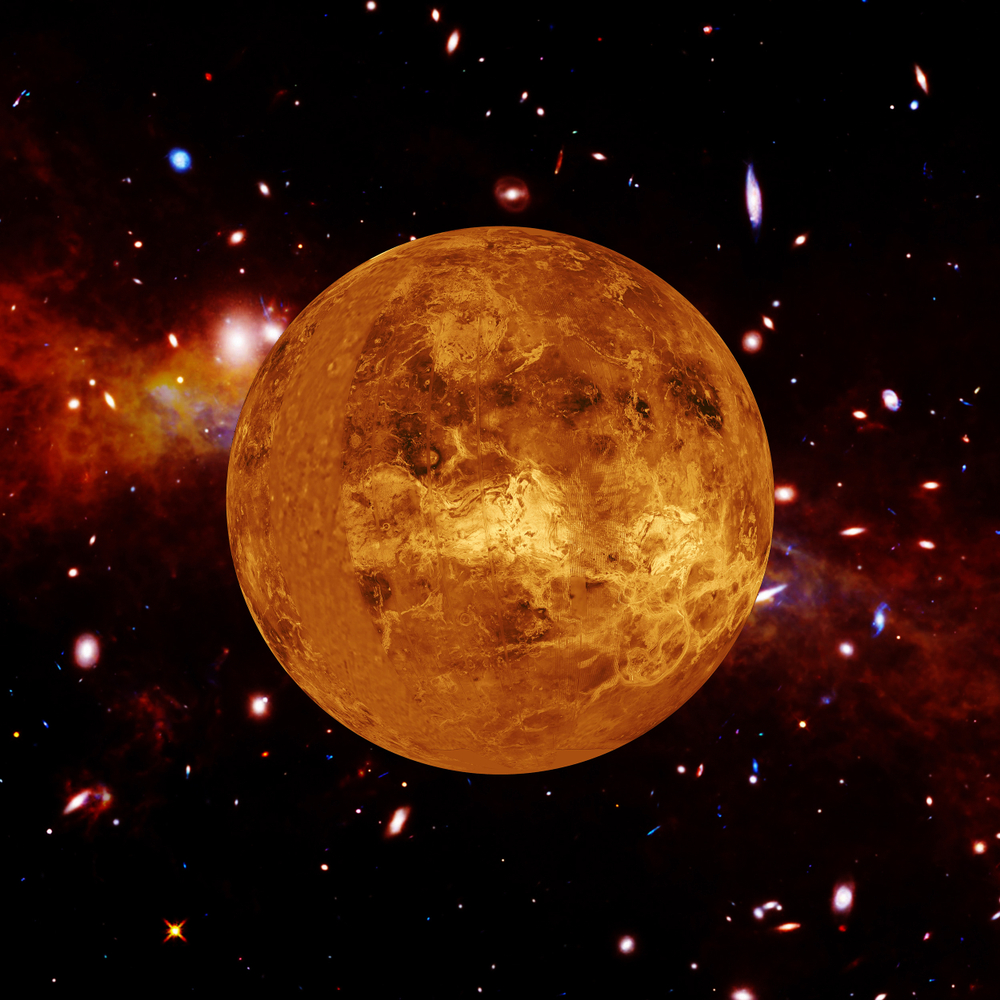
For several millennia, humans have looked to the skies and searched for meaning. The art of astrology may have resulted from the desire to discover patterns, find hidden knowledge, and discern a deeper order present within existence. As both a planet and a goddess, Venus has captured our imagination in a variety of ways. A bright celestial body thought to influence love and financial matters, Venus is believed to play a major role in our natal charts.
A Brilliant Morning and Evening Star
The Encyclopedia Britannica reveals that the Babylonians associated Venus with the goddess Ishtar. They were the first to document the planet’s appearances, with their records dating to around 3000 B.C.E. The ancient Chinese, Egyptians, Greeks, and societies throughout Central America also discussed the planet in their astronomical writings. The Greeks saw it as a luminous star appearing in both the morning and evening, naming it Phosphorus and Hesperus respectively. Eventually, its modern name was derived from the Roman goddess of love and beauty.
Scientific advances gave us the ability to learn more about this planet. Galileo Galilei observed it through his telescope in the early 1600s. We now know more thanks to data gathered by radar, telescopes, and spacecraft exploration. Venus is quite different from the classical image of the Roman goddess, with a hellish atmosphere composed almost entirely of carbon dioxide and surface temperatures reaching 867 degrees Fahrenheit.
Venus’s Meanings in Astrology
Cafe Astrology describes Venus as representing love and money aspects in our lives. Yet the writers caution that this description is simplistic, adding that it symbolizes grace, charm, and beauty. This sign rules both Libra and Taurus as well as the second house, governing material matters and money, and the seventh house, which deals with partnerships.
As Mystica Astrology further clarifies, Venus speaks to our sensory pleasures, artistic tastes, and what gives us the most delight in our lives. Here, astrologer Emma Wilson details that it signifies where our attractions lie in a variety of aspects, including food, people, places, environments, and even politics or education.
How Venus Behaves Within Zodiac Signs and Houses
Since this planet orbits our sun in around 225 days, it usually takes about 23 days to travel through each zodiac sign. Apparent retrograde motion can change these patterns, extending its presence within a sign by up to two months. According to astrologers, its energies work together with those in a zodiac sign to produce unique effects in an individual’s personality and birth chart. Venus in Taurus, for instance, could result in a grounded person who’s affectionate, generous, and appreciative of luxurious things. Conversely, Venus in Sagittarius may produce an individual seeking new delights, social interactions, and opportunities for love.
Similarly, Venus’ energies are thought to interact with each house’s subject areas. Venus in the seventh house leads to harmony, balance, and the potential for strong relationships and commitments. Since Venus is seen as a beneficial influence in every house, its location in the first house is believed to lend positive effects to a person’s appearance, charm, and ability to attract others.
Of course, Venus in retrograde may challenge its traditional impacts on signs and houses. Cafe Astrology clarifies that retrograde Venus in a natal chart can potentially result in shyness, lack of confidence, and the tendency for self-sabotage.
A Planet of Contradictions
Venus is a fascinating planet both in astrology and astronomy. As one of our nearest neighbors in space, its close proximity to our sun, slow rotation, and densely cloudy skies produce a hostile environment. Yet it’s still seen as the planet of beauty, love, art, and pleasure. With modern interest in astrology growing, humans will keep discussing this planet and its possible astrological impacts for some time.

